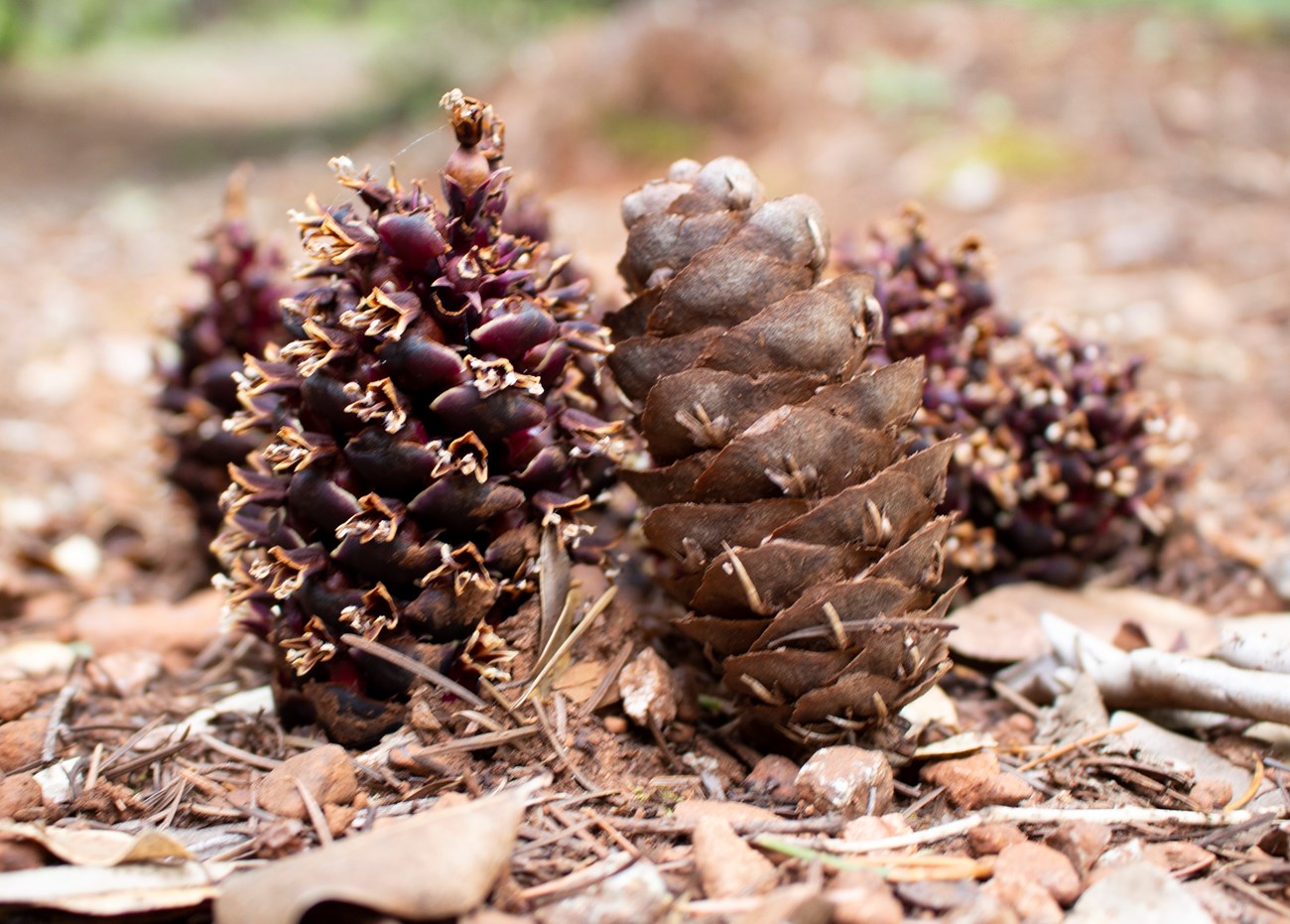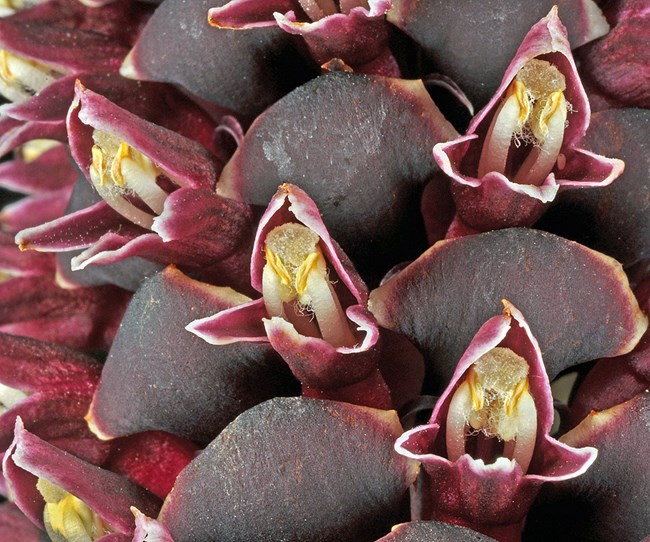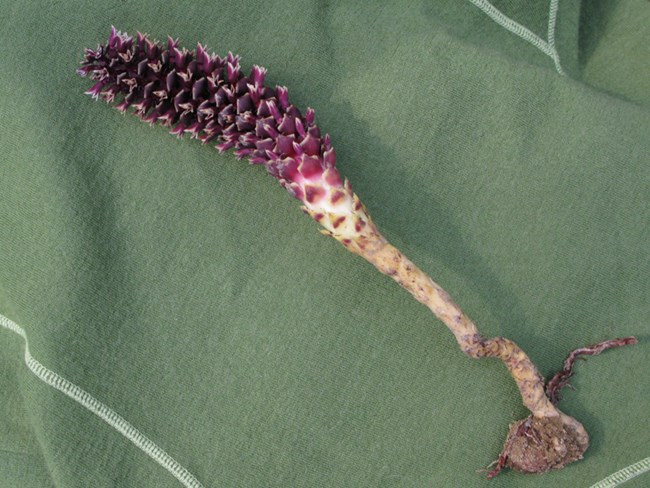Last updated: February 22, 2022
Article
California Groundcone

Debra Agnew (2019)
Imagine yourself walking on a semi-shaded trail in the woods. The sun casts geometric shapes of light on the forest floor that shift and move with the gentle breeze. Smooth, cinnamon red madrone bark and twisting burgundy manzanita stems stand out against the soft greens, grays, and browns of Douglas-fir and ponderosa pine.
The trail takes you down a slope and the canopy opens before you. Suddenly you notice something odd: a shaggy Douglas-fir cone standing straight up beside the trail. With a closer look you notice there are several of these odd things clustered together, and some of them are purple and covered in flowers. Perhaps they aren’t cones after all…?
California groundcone (Kopsiopsis strobilacea; formerly Boschniakia strobilacea, depending on taxonomic scheme) is an odd wildflower that spends about nine months underground. When it finally emerges, blooming with regal purple flowers, it finds itself in a case of mistaken identity, or simply overlooked.

Gerald D. Carr
General Description
Groundcones are distantly related to mints and are in the same family (Orobanchaceae) as the wildflower, Indian paintbrush. Both plants are parasitic, meaning they take nutrients from a host plant.
The part of the groundcone plant that we see above ground is called an inflorescence. It can be 7 to 18 cm (2–7 in) long, is cone or cylinder-shaped, and is surrounded by bracts or scales that resemble the scales of a cone from a fir or pine tree. Purplish-red flowers stick out from between the bracts. The flowers become small round fruits bearing tiny seeds (about 2 mm). Currently, very little is known about which animals pollinate groundcone flowers, eat its parts, or help spread its seeds.
California groundcone blooms May through July in most of the parks in the Klamath Network. Dried inflorescences can remain on the forest floor long after their flowers have wilted, browning and aging beside their fir cone twins.

Daniel Mosquin / UBC Botanical Garden (2008)
Parasitism
Green plants use chlorophyll to create their own food from sunlight and water through photosynthesis. California groundcone doesn’t perform photosynthesis. Instead, it uses haustoria – specialized roots – to attach to and take nutrients from the roots of Pacific madrone trees (Arbutus menziesii) and manzanita shrubs (Arctostaphylos spp.). Although it is a holoparasite, meaning that it is fully dependent on its host for survival, there is currently no scientific evidence that it is harmful to its hosts.
Habitat and Distribution
California groundcone grows in open mixed conifer woodlands and chaparral where madrone trees and manzanita shrubs are present. It often grows beside or on trails. Its range is scattered and extends from central and southern Oregon to Baja California (Mexico). It can grow at sea level to nearly 1830 m (6000 ft) elevation, depending on latitude. Roots of madrones and manzanitas can spread far from their main trunks or stems, so California groundcone may grow where its host is not apparently present.
Conservation
California groundcone is one of only two species of Kopsiopsis found in the Pacific Northwest; however, there are no conservation concerns for this species at this time.
Where to See
California groundcone is present in Lassen Volcanic National Park, Redwood National and State Parks, Whiskeytown National Recreation Area, and Oregon Caves National Monument and Preserve.
More Information
https://www.calflora.org/entry/dgrid.html?crn=11786
https://www.inaturalist.org/taxa/77612-Kopsiopsis-strobilacea
Download a pdf of this article.
Prepared by Debra Agnew, Southern Oregon University science communication intern
NPS Klamath Inventory & Monitoring Network
Southern Oregon University
1250 Siskiyou Blvd
Ashland, OR 97520
Featured Creature Edition: September 2019
